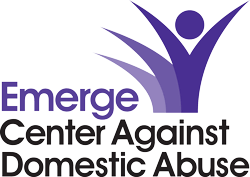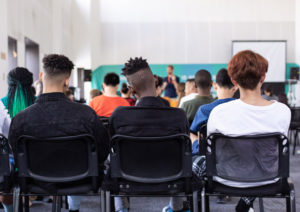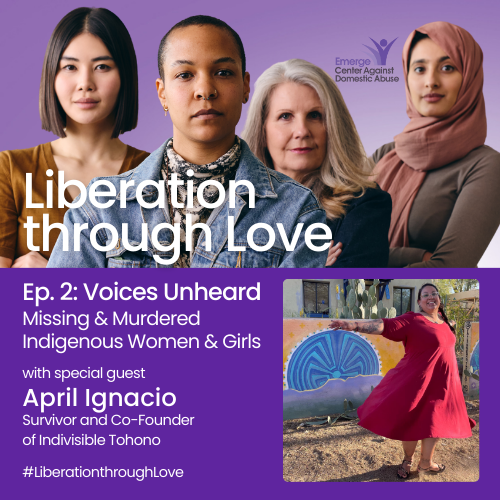At Emerge, we honor the work, strength, and resilience of Indigenous communities, especially the Indigenous women leading the movement for safety and justice. This month’s episode of Liberation through Love addresses a critical issue: Missing and Murdered Indigenous Women and Girls (MMIWG). We are privileged to host April Ignacio, a survivor, advocate, and co-founder of Indivisible Tohono, for a powerful conversation on the root causes of this epidemic, the barriers to safety, and the ongoing fight for justice.
Did you know that more than four in five Indigenous adults have experienced psychological aggression, physical violence, stalking, or sexual violence by an intimate partner? Additionally, Native American women are three times more likely to be murdered than white women.
Despite these harrowing statistics, many people remain unaware of this crisis. A recent survey by the First Nations Development Institute revealed that over half of non-Indigenous respondents had never heard about the violence Indigenous women endure. It’s time to change that.
The ongoing violence against Indigenous women is not just an Indigenous issue; it’s a community issue that demands our collective attention. It requires men to listen, reflect, and take responsibility for changing harmful attitudes to ensure the safety and well-being of Indigenous women and girls. It calls on all of us to cultivate safer communities for everyone.
This episode is a call to action. By understanding the scope of the MMIWG crisis and the challenges faced by Indigenous communities, we can all play a role in creating a safer future. Listen now, share widely, and be part of the change.
This is a conversation you won’t want to miss. Listen to Episode #2 of Liberation through Love now, and share widely!




